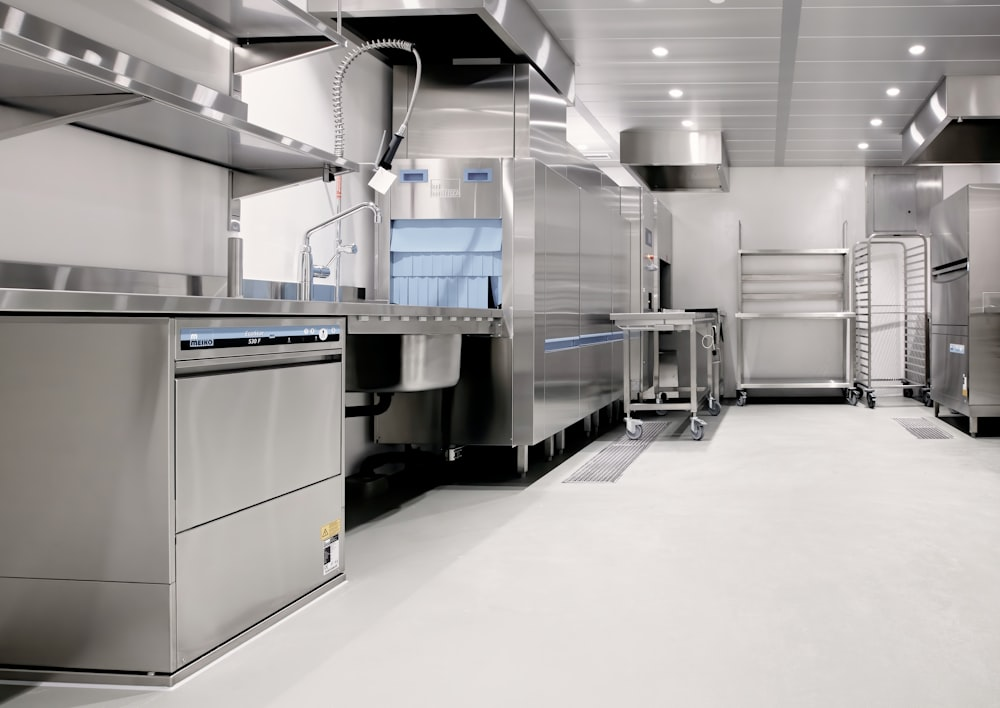The dishwasher is one of the best modern home appliances that free us from the drudgery of endless dish washing. But like any appliance, it performs best when you use it correctly. You can maximize your dishwasher’s efficiency, performance, and lifespan by following some simple practices.
This translates to cleaner dishes, lower energy bills, and a happy appliance that will serve you for years. Read this blog by plumbers in Maryland to learn more.
Loading Like a Pro: The Art of Dishwasher Tetris
The key to a sparkling clean and efficient wash lies in proper loading. Here’s how to become a dishwasher Tetris master:
Scrape, Don’t Pre-Rinse: Scrape off large food particles before loading. Resist the urge to pre-rinse excessively – dishwashers can handle moderate food residue. Excessive rinsing can waste water.
Space it Out: Don’t overcrowd the dishwasher. This restricts water flow and hinders cleaning. Leave space between dishes for water and detergent to circulate freely.
Bottom Rack: Place pots, pans, and baking sheets on the bottom rack, facing inward. Utilize pot and pan scrubbing attachments for heavily soiled cookware.
Top Rack: Plates, bowls, and glasses go on the top rack. Angle plates to prevent water pooling. Place cups and glasses upside down to avoid water collecting.
Utensil Basket: Keep utensils separate to prevent nesting and ensure proper cleaning. Use the designated compartments for knives and sharp objects.

Choosing the Right Detergent: Not All Powders Are Created Equal
Dishwashing detergents come in various forms – powders, gels, and pods. The best choice depends on your water hardness and personal preference.
Powder: Effective in both hard and soft water. It can be messy to measure.
Gel: Works well in all water conditions. It may be slightly more expensive than powder.
Pods: Convenient and pre-measured, but often more expensive and may not be suitable for hard water.
No matter the form, follow these guidelines:
Use the recommended amount: Too much detergent can leave residue, while too little can lead to poor cleaning.
Consider hard water: If you have hard water, opt for detergents with a chelating agent to prevent mineral buildup and spotting.
Eco-friendly options: Look for eco-friendly detergents that are phosphate-free and biodegradable.
Cycle Savvy: Selecting the Perfect Wash for the Job
Modern dishwashers offer a variety of wash cycles. Choosing the right one for the load helps save water and energy.
Light/Eco-Cycle: Ideal for lightly soiled dishes, glasses, or a small load.
Normal Cycle: The all-rounder for everyday dishes with moderate food residue.
Heavy Duty/Sanitize Cycle: For heavily soiled pots, pans, or dishes requiring extra cleaning and disinfection. This cycle uses higher water temperatures and may take longer.

The Magic of Maintenance: Keeping Your Dishwasher Running Smoothly
Regular maintenance ensures your dishwasher operates efficiently and prevents future problems. Here’s a basic maintenance checklist:
Clean the Filter: Most dishwashers have a removable filter that traps food particles. Clean it regularly according to the manufacturer’s instructions. A clogged filter reduces cleaning performance.
Inspect Spray Arms: Occasionally check the spray arms for clogs or buildup. Clean them with warm water and a soft brush to ensure proper water distribution.
Wipe Down the Interior: Every few months, wipe down the interior of the dishwasher with a damp cloth to remove any food residue or grime buildup.
Run a Cleaning Cycle: Some dishwashers have a dedicated cleaning cycle. Use this periodically with a dishwasher cleaner to remove mineral deposits and odors.

Ensure Your Dishwasher Runs Like New with Expert Help from Your 1 Plumber!
Maximize your dishwasher’s efficiency and performance today! Contact Your 1 Plumber for professional plumbing services. Don’t wait for problems to arise—schedule an appointment now to keep your plumbing installations in top shape.
Call our plumbers in Maryland to learn more!

